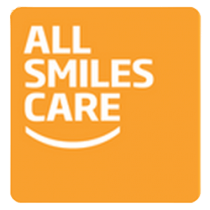Recent studies have shown that self -examination for signs of oral cancer can improve early detection of the disease. Self-examination does not take the place of regular dental care, and should be done under the supervision of your dental hygienist.
Here is a step-by-step guide to a self -examination for oral cancer:
Step 1: Establish a baseline for normal
This can be done with the help of your dental hygienist.
Step 2: Know the symptoms of oral cancer
- Any lump, sore, or ulcer that does not heal in 2 weeks
- A sore that bleeds and doesn’t heal in 2 weeks
- Patches that are red or white
- Pain in the mouth that does not heal in 2 weeks
- Ear pain
- Enlargement of thyroid or lymph nodes/external neck mass
- Trouble chewing/swallowing
- Hoarseness
- Sore throat that does not heal in 2 weeks
- Numbness or burning of the mouth
- Swelling or difficulty extending the tongue
- Skin rashes that suddenly appear
Step 3: Examine the following areas:
1. lips—feel for bumps, soreness, or lumps
2. tongue—check for red or white patches, lumps, or bumps
3. floor of the mouth (under the tongue) –check for bumps, white or red patches, or ulcers
4. cheeks—feel entire surface for masses, soreness, or ulcers
5. palate (front roof of mouth)—often irritated from hot or crusty foods, but if a sore lasts longer than 2 weeks, bring it up with your health professional
6. tonsils and posterior pharyngeal wall (straight back behind palate)—say “aaah” to examine and look for colored patches, lumps, or ulcers
7. gums—not a common site of oral cancer, but abnormalities can indicate other health issues
If you find an abnormality, write it down and note any changes over a two week period. If they are significant, contact your dentist immediately and make an appointment. Do not wait longer than two weeks for the area to clear up. If your dentist treats the problem and it does not clear up, get a second opinion. Oral cancer does not go away on its on and requires treatment and remember—early treatment can save your life.
All Smiles Dental Care is offering an oral cancer self-examination guide. To request yours, send an email to : [email protected].

